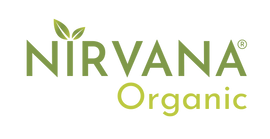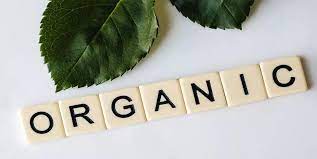Introduction: Trust Is the New Currency
When you choose organic, you're making a statement — for your health, for the planet, and for a fairer food system. But how can you be sure that "organic" really means what it claims?
In a world of complex supply chains and greenwashing, trust has become the most valuable commodity.
This is where blockchain technology enters the story — offering a revolutionary new way to ensure transparency, traceability, and accountability in the organic food world.
In this blog, we’ll unpack how blockchain is reshaping organic food supply chains, why it matters for consumers like you, and how it’s setting a new gold standard for the future of food.
What Is Blockchain (In Simple Terms)?
Before we dive in, let’s simplify the tech jargon.
Blockchain is a secure, digital ledger that records information in a way that is:
-
Transparent (everyone involved can see the records)
-
Unchangeable (once information is recorded, it cannot be altered)
-
Decentralized (no single entity controls it)
In food supply chains, blockchain can track every step a product takes — from the organic farm where it’s grown, to the shelf where you buy it.
Imagine scanning a QR code on your bag of organic quinoa and instantly seeing:
-
The farm it came from
-
When it was harvested
-
How it was processed
-
Transport details
-
Certifications (verified, not just claimed!)
That's the power of blockchain.
Why Transparency Matters in Organic Food
Organic consumers aren't just buying food — they're buying trust.
And unfortunately, the traditional food system sometimes falls short:
Common Issues in Organic Food Today:
-
Mislabeling and fraud: Some products are falsely marketed as "organic."
-
Complicated supply chains: Products change hands many times, making verification tricky.
-
Limited visibility: Shoppers often rely solely on labels and marketing claims.
These gaps create an environment where misinformation can flourish — and where truly ethical farmers and brands struggle to stand out.
How Blockchain Is Transforming Organic Food
Blockchain offers solutions to the most pressing challenges in the organic food industry:
1. End-to-End Traceability
Every transaction — from seeding to harvesting to shipping — gets recorded in a blockchain ledger.
This means any organic product's full journey is permanently documented and easily verifiable.
Example:
You buy a box of organic strawberries. With a quick scan, you can see:
-
The farm location
-
The exact harvest date
-
Certification audits
-
Transport and storage conditions
No guessing. No shady shortcuts.
2. Stronger Certification Processes
Organic certifications can now be logged on blockchain — making it easier for buyers to verify claims instantly.
Instead of relying on "trust us" marketing, certifications are backed by unchangeable digital records.
3. Fighting Food Fraud
Blockchain makes it extremely difficult for dishonest suppliers to pass off conventional food as organic.
Once a product is entered into the blockchain, it’s there for good — ensuring that what you buy is what you get.
4. Empowering Ethical Producers
Blockchain levels the playing field for small, ethical farmers.
Producers who genuinely follow organic practices can prove their standards, gaining consumer trust without expensive third-party intermediaries.
5. Building Consumer Confidence
Ultimately, blockchain gives consumers the power to verify — making food labels and branding claims less about trust and more about truth.
Real-World Examples of Blockchain in Organic Food
Blockchain in organic agriculture isn’t just theory — it’s happening right now.
IBM Food Trust:
Partnered with brands like Walmart and Nestlé, this blockchain system tracks fresh produce and packaged goods from source to store.
Provenance:
A UK-based platform that uses blockchain to help ethical brands prove their sustainability and sourcing claims.
TE-Food:
Focused on farm-to-table blockchain solutions for the organic food sector, particularly in emerging markets.
These pioneers are demonstrating that blockchain isn’t just for cryptocurrency — it’s reshaping how we feed the world.
How This Impacts You as a Consumer
Thanks to blockchain, you can now:
-
Buy with confidence: Know exactly where and how your food was grown.
-
Support ethical practices: Choose brands and farmers who walk the talk.
-
Demand better standards: Push the entire food industry toward transparency.
Imagine a future where every organic label comes with a digital, scanable proof of authenticity.
Thanks to blockchain, that future is already unfolding.
Challenges to Overcome
Of course, blockchain isn’t a magic wand. Some hurdles still exist:
-
Adoption: Smaller farms may struggle with the costs or technical barriers.
-
Data Accuracy: Blockchain records are secure, but the initial data must still be accurate — "garbage in, garbage out."
-
Scalability: Making blockchain standard across entire supply chains takes time and coordination.
However, the momentum is growing — and as technology becomes more accessible, so too does the dream of fully traceable, trustworthy food.
The Future: Blockchain + Organic = A New Standard
In the coming years, blockchain could become as vital to organic food as USDA certifications are today.
It’s not just a "nice-to-have" — it’s a must-have for brands that want to earn and keep consumer trust.
Forward-thinking organic brands are already investing in blockchain technology to stay ahead.
As more consumers demand transparency, blockchain will become a basic expectation rather than a bonus feature.
Final Thoughts: Trust What You Eat
In a world where food travels thousands of miles and changes many hands, blockchain brings something powerful: truth.
By combining organic farming’s commitment to purity with blockchain’s promise of transparency, we can build a food system that's healthier, more honest, and more sustainable.
Next time you shop organic, imagine a world where every product tells you its full story — openly, honestly, and in seconds.
With blockchain, that world is closer than ever.





















